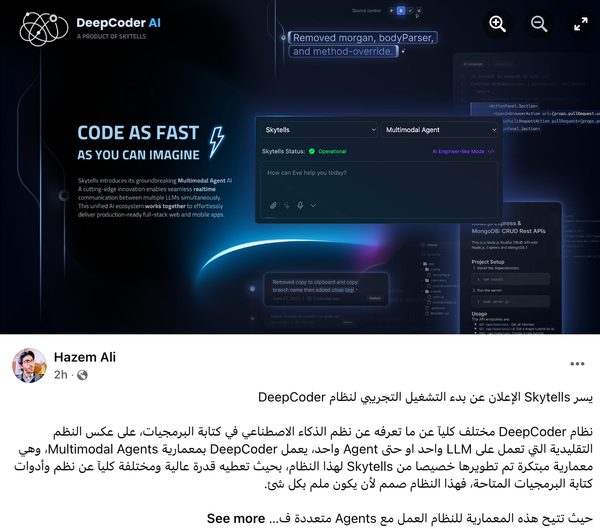Lua: A Scripting Language That Does More
Table of Content
Lua is a powerful, efficient, lightweight, embeddable scripting language. It combines simple syntax with a highly flexible design, making it ideal for various applications, from game development to web scripting.
Because, we use Lua at our work frequently, we recognize the lack of documentation about this awesome language, so we have been preparing this post for sometime now.
The History of the Lua Language
Lua, a name meaning "moon" in Portuguese, was created in 1993 at the Pontifical Catholic University of Rio de Janeiro, Brazil. The language's development was driven by the need for a simple, extensible scripting language that could be embedded in other applications.
The team behind Lua—Roberto Ierusalimschy, Luiz Henrique de Figueiredo, and Waldemar Celes—initially designed it to address specific needs in the Brazilian tech industry, particularly in the fields of data description and configuration.
Early Beginnings: The Birth of Lua
In the early 1990s, Brazil's tech landscape was marked by strict import restrictions on software, which spurred the development of local solutions. The creators of Lua were working on a project that required a language for configuration and data description. Existing solutions were either too complex or not flexible enough, so they set out to create their own language.
Lua’s first version, Lua 1.0, was released in July 1993. It was initially designed to be embedded in applications that needed an extension language, focusing on simplicity, portability, and ease of integration. Lua's syntax was heavily influenced by languages like SOL (Simple Object Language) and DEL (Data-Entry Language), which the developers had previously worked on.
The Evolution of Lua
As Lua evolved, it adopted several key features that would define its future:
- Tables: Introduced in Lua 2.1 (released in 1994), tables are Lua’s only data structuring mechanism. They are highly flexible and can be used as arrays, dictionaries, and even objects, making Lua a powerful language for various applications.
- First-Class Functions: With Lua 3.0 (released in 1998), functions became first-class values, allowing for greater flexibility in the language's programming paradigms.
- Metatables and Metamethods: Introduced in Lua 3.1 (released in 2000), these features allowed for operator overloading and more complex data abstractions, adding significant power to Lua's simplicity.
- Coroutines: Added in Lua 5.0 (released in 2003), coroutines provided Lua with lightweight threads, enabling cooperative multitasking without the complexity of preemptive multitasking.
Lua's Growth and Adoption
Lua’s design as a lightweight, embeddable language made it attractive to developers across various industries. Its use began to grow beyond its Brazilian roots, gaining international attention.
One of the first major international successes for Lua was its adoption by the game development industry. Developers found Lua to be an ideal language for scripting game logic due to its simplicity, speed, and small footprint. Lua’s popularity in this field exploded when it was adopted by companies like Blizzard Entertainment, which used it to create user interface modifications in the popular MMORPG World of Warcraft.
Over time, Lua became the go-to language for scripting in numerous games and applications. Its adoption wasn’t limited to games; it found its way into web servers, embedded systems, and even scientific computing. Lua’s success was largely due to its philosophy of being a language for embedding rather than a standalone programming environment. This flexibility allowed Lua to be used in various contexts, from small embedded devices to large-scale software systems.
Lua Today
Lua continues to be actively developed and maintained. The latest stable release, Lua 5.4, was released in June 2020. This version introduced incremental garbage collection, which improved the language’s memory management capabilities, especially in systems with limited resources.
Lua's influence can be seen in many areas of software development today. It remains a popular choice for game development, particularly in mobile and indie games, due to its simplicity and performance. Lua is also used in web development, robotics, image processing, and more.
The language's community, though smaller compared to giants like Python or JavaScript, is passionate and dedicated. Lua’s documentation is known for being clear and concise, and the language's simplicity ensures that it remains accessible to newcomers while being powerful enough for advanced developers.
Lua’s journey from a small, Brazil-based project to a globally recognized scripting language is a testament to its design philosophy. By focusing on simplicity, portability, and flexibility, Lua has carved out a niche for itself in the world of programming. Whether embedded in games, powering web applications, or running on embedded systems, Lua continues to be a vital tool for developers who need a lightweight and powerful scripting solution.
Features of Lua
- Simplicity: Lua is known for its straightforward syntax, which is easy to learn for beginners yet powerful enough for seasoned developers.
- Performance: Lua is designed for performance, often outperforming other scripting languages in execution speed.
- Extensibility: Lua can be easily embedded into other applications, making it a popular choice for adding scripting capabilities to software.
- Portability: Lua runs on all major platforms, including Windows, Linux, and macOS, and can be embedded in almost any device.
- Garbage Collection: Lua has an automatic memory management system, reducing the burden on developers to manage memory manually.
Success Stories
Lua has been used in many successful projects, particularly in the gaming industry:
- World of Warcraft: Lua is used to create custom UI modifications in this globally popular MMORPG, allowing players to tailor their in-game experience.
- Angry Birds: The physics engine of this iconic mobile game is powered by Lua, contributing to its smooth and engaging gameplay.
- Adobe Lightroom: Lua is embedded in this powerful photo editing software, handling the scripting of plugins and automation features.
- VLC Media Player: Lua scripts enhance the functionality of VLC, enabling advanced features like customizable skins and automation.
- Roblox: This massively multiplayer online game platform uses Lua as its scripting language, allowing users to create and share their games.
- Awesome WM: is an amazing fast tiling window manager for X/ Linux, It is built using C and Lua.
Best 10 Open-Source Apps Created with Lua
- Nginx: A high-performance web server that uses Lua for advanced scripting capabilities.
- Wireshark: A network protocol analyzer that uses Lua for scripting custom dissectors and automation tasks.
- Torch: An open-source machine learning library that uses Lua for developing deep learning algorithms.
- Neovim: A modern text editor that extends Vim, using Lua for plugins and configuration.
- Kong: An open-source API gateway that uses Lua for plugins and custom logic.
- Mudlet: A cross-platform MUD client that uses Lua for scripting and automation.
- Hammerspoon: A tool for automating macOS, using Lua for scripting various system actions.
- Luakit: A highly configurable browser framework using WebKit and Lua, tailored for developers who want to create custom browsing experiences.
Frameworks for Web Development
- Lapis: Built on top of Nginx and OpenResty, Lapis allows for the development of web applications in Lua. It offers a powerful routing system, ORM (Object-Relational Mapping), and templating engine, making it a solid choice for building web applications.
- Sailor: A web framework that brings an MVC (Model-View-Controller) architecture to Lua. It’s designed to be simple and fast, ideal for developers who want to create web applications with minimal setup.
- Orbit: A lightweight Lua web framework that emphasizes simplicity and flexibility, suitable for small to medium-sized web projects.
- WSAPI: The Web Server API for Lua, providing a standard interface between web servers and web applications. It serves as a foundation for many Lua web frameworks.
Game Engines Using Lua
- Corona SDK (Solar2D): A cross-platform framework that uses Lua for developing 2D games and applications. It's widely used for mobile game development due to its ease of use and rapid development cycle.
- LOVE: A popular engine for 2D game development, LOVE uses Lua to script game logic and handle graphics rendering.
- Defold: A cross-platform game engine that uses Lua for scripting, known for its performance and ease of use in creating mobile and web games.
- Gideros: An open-source game development platform that uses Lua, supporting various platforms including iOS, Android, and Windows.
- MOAI SDK: A mobile-focused game engine that uses Lua for scripting, allowing developers to create high-performance games with a small footprint.
Installing Lua
1- On Windows:
- Download: Visit the Lua website and download the Windows binaries.
- Extract: Extract the downloaded ZIP file to a directory of your choice.
- Add to PATH: Add the Lua binary directory to your system’s PATH environment variable.
- Verify Installation: Open Command Prompt and type
lua -vto check if Lua is installed correctly.
2- On Linux:
- Install Dependencies: Open a terminal and install the necessary dependencies using your package manager. For Ubuntu/Debian:
sudo apt-get install libreadline-dev - Download: Download the latest Lua source code from the official Lua website.
- Extract: Extract the downloaded tarball using
tar -zxvf. - Compile: Navigate to the extracted directory and run
make linux testto compile Lua. - Install: Run
sudo make installto install Lua on your system.
3- On macOS:
- Using Homebrew: If Homebrew is installed, open Terminal and type
brew install lua. - Manual Installation: Alternatively, download the Lua source code, extract it, and follow the same compilation steps as Linux.
- Verify Installation: Type
lua -vin Terminal to ensure Lua is installed.
Conclusion
Lua's versatility, simplicity, and performance make it a powerful tool in various domains, from game development to web scripting. Its extensive use in successful projects and the availability of robust frameworks and engines further solidify its place in modern software development.
Whether you're developing games, building web applications, or automating tasks, Lua provides the tools and flexibility needed to get the job done efficiently.











